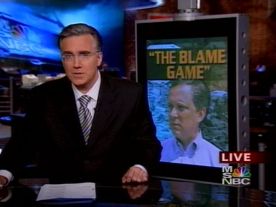Constituting Truth
From The New CriterionOf course it had to have come out of 21st century academe, that witch’s cauldron of horrible ideas for wrecking our country’s culture, politics and institutions. I first remember coming across it in a book I was reviewing a decade and more ago by a couple of professors, names long forgotten, who wrote of “truth” as something requiring a “constituency.” I can still feel the shock with which I was pulled up short by those words. Surely, I thought, we are all constituents of the truth? But then I realized that what the authors were saying was that they, and presumably the audience for which they were writing, had already abandoned any idea of truth in that sense — truth that was true for everybody in every time and every place — as out of date. Now, advanced thinkers like themselves understood truth to be always and everywhere political and therefore contingent. In their world, truth, like anything else, could only become “truth” by acquiring enough Twitter followers, and the political muscle that goes with them, to compel belief.
That, as I say, was more than ten years ago, before Twitter itself existed, and it seemed an exotic flowering of the intellectual hot house unlikely to catch on with normal people. Looking back on it now, however, I can see that it already had caught on in a big way, particularly among the antiwar left, whose mantra at the time (you may remember) was “Bush lied, people died.” That was a truth claim which could only depend upon a particular political viewpoint, asserted along with the assertion that “Bush lied.” That claim seemed to me not only implausible — why would he have lied when he must have known that his own actions in invading Iraq would expose the falseness of his claims about Weapons of Mass Destruction? — but irresponsible, designed to inflame anti-American feeling. Silly me! It was precisely because the purpose of the slogan was to inflame anti-American feeling that what was to me the clear falsehood that President Bush had “lied,” was asserted as truth in the first place.
As we have since had innumerable opportunities to learn, the best way to cover up one’s own lies is pre-emptively to accuse the other fellow of lying. That’s why, by the way (as I may have mentioned once or twice before), democratically-elected bodies throughout the world have banned the charge of lying against one’s political opponents (or, in Senator Ted Cruz’s case, one’s allies) as “unparliamentary language.” What debate is possible between parties who deny each other’s good faith? But we have long since abandoned this necessary rule along with anything like genuine debate. When debate ends, war — even if it is only a tragical-comical burlesque of a war with words, for the most part, as the only weapons — is what remains.
Perhaps other people, especially if they are younger, now take all this for granted, but appeals to merely partisan “truths” still have the power to shock me on the rare occasions when they show up with the naked cynicism to express themselves without disguise.
Such an occasion was the testimony of Peter Strzok before a joint hearing by the House Judiciary Committee and the Committee on Oversight and Government Reform on July 12 — a day that ought to go down in history as marking the death of reality. For Mr Strzok, a man quite obviously guilty at the very least of massive improprieties and abuses of power if not of criminal behavior, asserted along with his innocence the supersession by private reality of, you know, reality, and the official culture threw up its hands in implied acknowledgment that truth is now entirely a partisan matter. That acknowledgment, however, took the form of accusations of partisanship against those who sought to expose his own.
The Washington Post’s report, by Felicia Sonmez, for example, feigns even-handedness but is chiefly impressed by Mr Strzok’s composure under GOP questioning. “Through it all, Strzok emerged as a largely unflappable, if unlikely, champion of the very bureau that removed him from his role in the Russia investigation last July.” She also gives prominence to Democratic claims of its all being a “circus” or a “kangaroo court.” Meanwhile, the paper’s “analysis” piece by Philip Bump was headed: “Peter Strzok just gave a hard-to-rebut defense of the objectivity of the Russia investigation’s origins” — by which he seems to mean that Mr Strzok’s absurd claim that his virulently anti-Trump views did not compromise his objectivity could be laughed at but not positively disproven. The Post’s editorial on the subject headed: “The Strzok hearing damaged our democracy” averred that, “With all its yelling and interruptions, the hearing was a fitting coda to the hyperpartisan farce of an investigation that House Republicans have conducted into the FBI and Mr. Mueller’s Russia probe.” NB: it’s the Republican investigation that is a “hyperpartisan farce” not the one of which Mr Strzok was once a part.
For his part, Mr. Strzok could not argue his way out of responsibility for his now- famous 2015 and 2016 text messages expressing strong anti-Trump views, as well as criticisms of other 2016 presidential candidates. Yet the messages are not proof of anything other than Mr. Strzok’s personal feelings — and, in committing them to writing on company equipment, his poor judgment. Republican arguments presumed that Mr. Strzok’s opinions were tantamount to corrupt behavior. As Lawfare’s Susan Hennessey, a former National Security Agency lawyer, put it, “What is actually on display here is House GOP members demonstrating that they cannot even conceive of the possibility someone could place duty and institutional integrity over base political and personal interests.”
One is speechless. Here is a man who patently did not put duty and institutional integrity over base political and personal interests, yet whose denial of the obvious is counted as a black mark against those who have pointed it out. The absurdity of the claim was illustrated in a mocking tweet by Ann Coulter: “Peter Strzok’s wife threatened to leave until he explained that not once did he let his affair with Lisa Page affect any specific actions he took in their marriage.” As Othello said to Iago’s claim that his wife might have been “naked abed” with another man without being unfaithful to him: “‘Tis hypocrisy against the devil!”
The New York Times, likewise, headed its news item “F.B.I. Agent Defends Actions in Russia Inquiry in Contentious House Testimony” and deadpanned: “The embattled F.B.I. agent who oversaw the opening of the Russia investigation mounted an aggressive defense of himself and the F.B.I. on Thursday, rejecting accusations that he let his private political views bias his official actions and labeling Republicans’ preoccupation with him ‘another victory notch in Putin’s belt’.”
“Let me be clear, unequivocally and under oath: Not once in my 26 years of defending my nation did my personal opinions impact any official action I took,” the agent, Peter Strzok, told House lawmakers investigating what Republicans say is evidence of rampant bias at the top levels of the F.B.I. But in defending himself and his agency, Mr. Strzok had to weather hours of blistering attacks by Republicans, who accused him not only of personal animus toward President Trump but also of blatant lying and moral misconduct with a senior F.B.I. lawyer, Lisa Page. It was a remarkable day of shouting matches and personal attacks that showcased the deep partisan divide over the federal investigation into whether the Trump campaign colluded with Russia to influence the outcome of the 2016 election. The performance by Republicans, echoing Mr. Trump’s own lines of attack, demonstrated just how far many in the party have moved since the days when they were seen as the party of law enforcement, deferential to its power and prerogatives.
It’s all about the GOP, in other words, and its ceasing to be the party of law enforcement (!) while Peter Strzok is just the victim of “blistering attacks” for daring to defend himself. The outrage of his misbehavior is repeated by the media in seeking to defend it against those who find it outrageous. Outrage, like truth, can now only be partisan — which means that, also like truth, it can no longer be said to exist in any politically non-tendentious sense.
Anything, that is, may be true if it has a constituency, as Mr Strzok clearly showed he did, and not only among fawning media acolytes like Eric Levitz of New York magazine whose report was headlined: “FBI Agent Peter Strzok Scorches GOP in Testimony Fit for Aaron Sorkin Script.” Democratic members of the committee also applauded him, one wishing he could have given him the Purple Heart. The military allusion merely recognized the only reality left that both sides can agree on, namely that a state of de facto war exists between the two parties in Congress as between pro- and anti-Trump factions in the country. Angelo Codevilla of The Claremont Review of Books called it a “Cold Civil War” — perhaps the same one that Lee Harris saw coming as long ago as 2010 when he published The Next American Civil War: The Populist Revolt Against the Liberal Elite back in 2010. Victor Davis Hanson has also recently written of “Our Second Civil War” in National Review. To what extent this “war” is only a metaphorical one, like the war on poverty or the war on drugs, is unclear, but it is literal enough to give rise to cries, apparently in all seriousness, of “treason” against the President himself from no less an authority than the Director of the CIA in the administration of his predecessor. Yet nobody seemed to see this as evidence for the politicization of the country’s intelligence services, for suggesting which in Helsinki during the week after the Strzok testimony Mr Trump had incurred the ex-spook’s wrath in the first place.
Treason! That’s John Birch Society talk, but it’s now apparently the property of the left — if you assume, as it seems reasonable to do, that Mr Trump himself was joking when he accused Democrats of treason for not applauding his State of the Union speech. He was only alluding to the fact that we now live in discrete rhetorical worlds, sometimes called “bubbles,” to which we owe the primary allegiance that was once claimed by our country and which have ever fewer lines of communication between them that do not involve mere insult, invective or more or less veiled threats of violence. What’s most remarkable about this unhappy state of affairs is the extent to which those inside the media bubble — or who are inside it without knowing it — go on speaking the language of “truth” and “lies” as if these were things we could all still agree on. True, this is mere disingenuousness on their part. At some level, they have to know that theirs is as much a partisan point of view as that which they now spend their lives criticizing. But, as the old saying used to go, there are none so blind as those who will not see.
Or, as we ought to add for today’s politics, as those who have become prisoners of their own rhetoric. Here I would like to add a footnote to my discussion of over a year ago in these pages (see “Cessation of the Oracles” in The New Criterion of February, 2017) of the matter of mattering, with particular reference to Black Lives Matter. Since then, more and more things have gone on to demonstrate how little they matter by finding champions of their mattering in blithe disregard of my warning that absolute mattering (as opposed to mattering to somebody) is impossible. If anything can be said to matter absolutely, it’s sex, since all living things above the protoplasmic level depend upon it for their very existence. Yet when my friend and colleague Mona Charen titled her excellent new book Sex Matters, I could not but wince. The expression x matters or why x matters has now been so often used for this or that bit of titular special pleading on behalf of some merely private or partisan truth that people are likely to assume it means that sex doesn’t matter — as many of them, thanks to progressive mythology, are already disposed to believe it doesn’t.
It’s a good illustration of the way in which even people on the outside of the media bubble can be led into rhetorical brambles and thickets when they continue to use the media’s language. When, for example, The New York Times appointed an Asian journalist called Sarah Jeong to its editorial board in spite of her having issued various hate-filled tweets about wanting to kill white people, especially white men — especially white men who are cops — outraged conservatives couldn’t see that the Times didn’t see these provocative statements as embarrassments but as recommendations. They were not to be taken literally but as signals that Ms Jeong, like Peter Strzok or the “Black Lives Matter” faction, was being recruited into the Times’s rhetorical world to become fellow crusaders against what the paper institutionally sees as the dark and destructive forces of the right.
That’s why well-meaning attempts like that of National Review’s David French to engage with Ms Jeong are naive and pointless. He purports to demonstrate that, “Yes, Anti-White Racism Exists” as if unaware that in prog-land anti-white racism most emphatically does not exist. Who is he writing for? NR readers already believe in anti-white racism, while in the world where anti-white racism is acceptable and routine, they’re not listening to him and would not be open to persuasion if they were. It’s not that hard to see, if you want to see, that the Times is no longer the house organ of the well-intentioned if rather dim “liberals” of yesteryear whom Lenin (or somebody else) is said to have identified as “useful idiots.” Instead, it has thrown in its lot with the consciously if not always avowedly revolutionary left in America today — including people who really do think, even if Sarah Jeong does not, that people like Mr French should be killed.
It’s all rather reminiscent of the revolutionary ferment of the late 1960s, which did result in some killings but not any actual revolution. Those too young to remember those days of rage and riot can look to revolutionary Iran today. There, the followers of the Ayatollahs in power started out by chanting in the streets: “Death to Israel” and “Death to America.” They are now opposed by other people chanting in the streets: “Death to Palestine” and “Death to the Ayatollah.” It’s rather comical if you’re standing at a safe distance from all these would-be death-dealers — as few of us will be for very much longer — but it’s only what to expect when a political culture ceases to value truth for its own sake instead of its political utility and so breaks down into violent or quasi-violent partisanship. When truth requires a constituency, it’s the constituents on both sides of traditional democratic politics who suffer.
Discover more from James Bowman
Subscribe to get the latest posts to your email.







